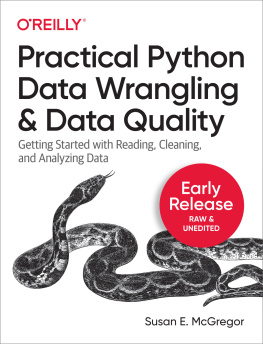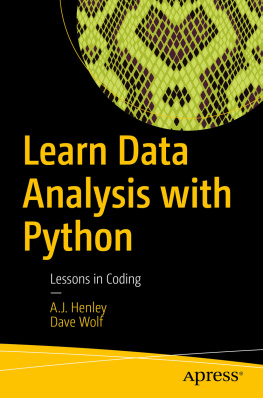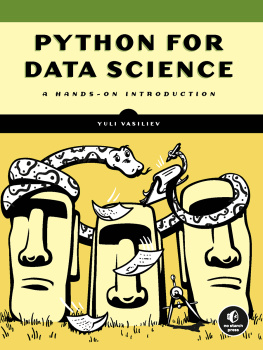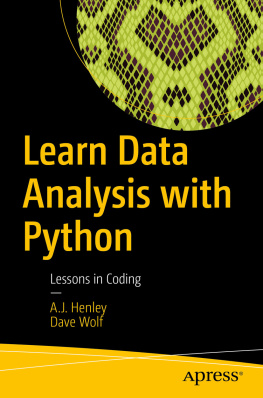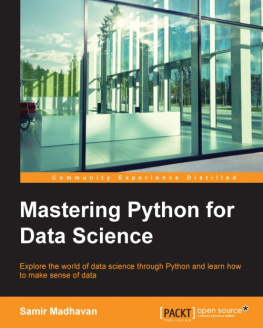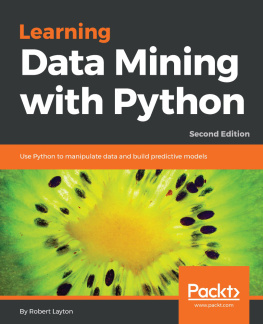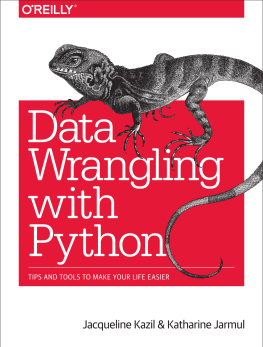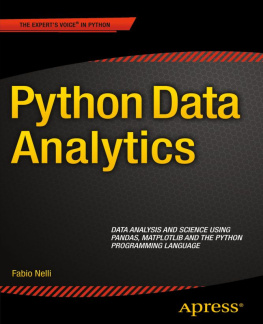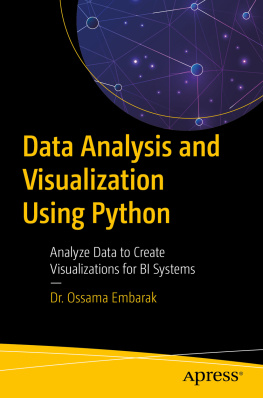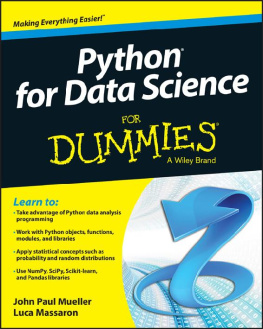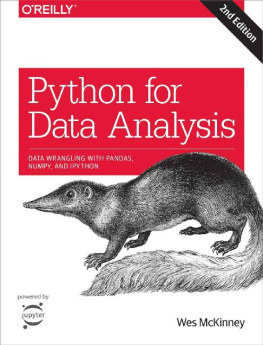Susan E. McGregor - Practical Python Data Wrangling and Data Quality
Here you can read online Susan E. McGregor - Practical Python Data Wrangling and Data Quality full text of the book (entire story) in english for free. Download pdf and epub, get meaning, cover and reviews about this ebook. year: 2022, publisher: OReilly Media, genre: Home and family. Description of the work, (preface) as well as reviews are available. Best literature library LitArk.com created for fans of good reading and offers a wide selection of genres:
Romance novel
Science fiction
Adventure
Detective
Science
History
Home and family
Prose
Art
Politics
Computer
Non-fiction
Religion
Business
Children
Humor
Choose a favorite category and find really read worthwhile books. Enjoy immersion in the world of imagination, feel the emotions of the characters or learn something new for yourself, make an fascinating discovery.
- Book:Practical Python Data Wrangling and Data Quality
- Author:
- Publisher:OReilly Media
- Genre:
- Year:2022
- Rating:5 / 5
- Favourites:Add to favourites
- Your mark:
Practical Python Data Wrangling and Data Quality: summary, description and annotation
We offer to read an annotation, description, summary or preface (depends on what the author of the book "Practical Python Data Wrangling and Data Quality" wrote himself). If you haven't found the necessary information about the book — write in the comments, we will try to find it.
There are awesome discoveries to be made and valuable stories to be told in datasets--and this book will help you uncover them. Whether you already work with data or just want to understand its possibilities, the techniques and advice in this practical book will help you learn how to better clean, evaluate, and analyze data to generate meaningful insights and compelling visualizations.
Through foundational concepts and worked examples, author Susan McGregor provides the tools you need to evaluate and analyze all kinds of data and communicate your findings effectively. This book provides a methodical, jargon-free way for practitioners of all levels to harness the power of data.
- Use Python 3.8+ to read, write, and transform data from a variety of sources
- Understand and use programming basics in Python to wrangle data at scale
- Organize, document, and structure your code using best practices
- Complete exercises either on your own machine or on the web
- Collect data from structured data files, web pages, and APIs
- Perform basic statistical analysis to make meaning from data sets
- Visualize and present data in clear and compelling ways
Susan E. McGregor: author's other books
Who wrote Practical Python Data Wrangling and Data Quality? Find out the surname, the name of the author of the book and a list of all author's works by series.

